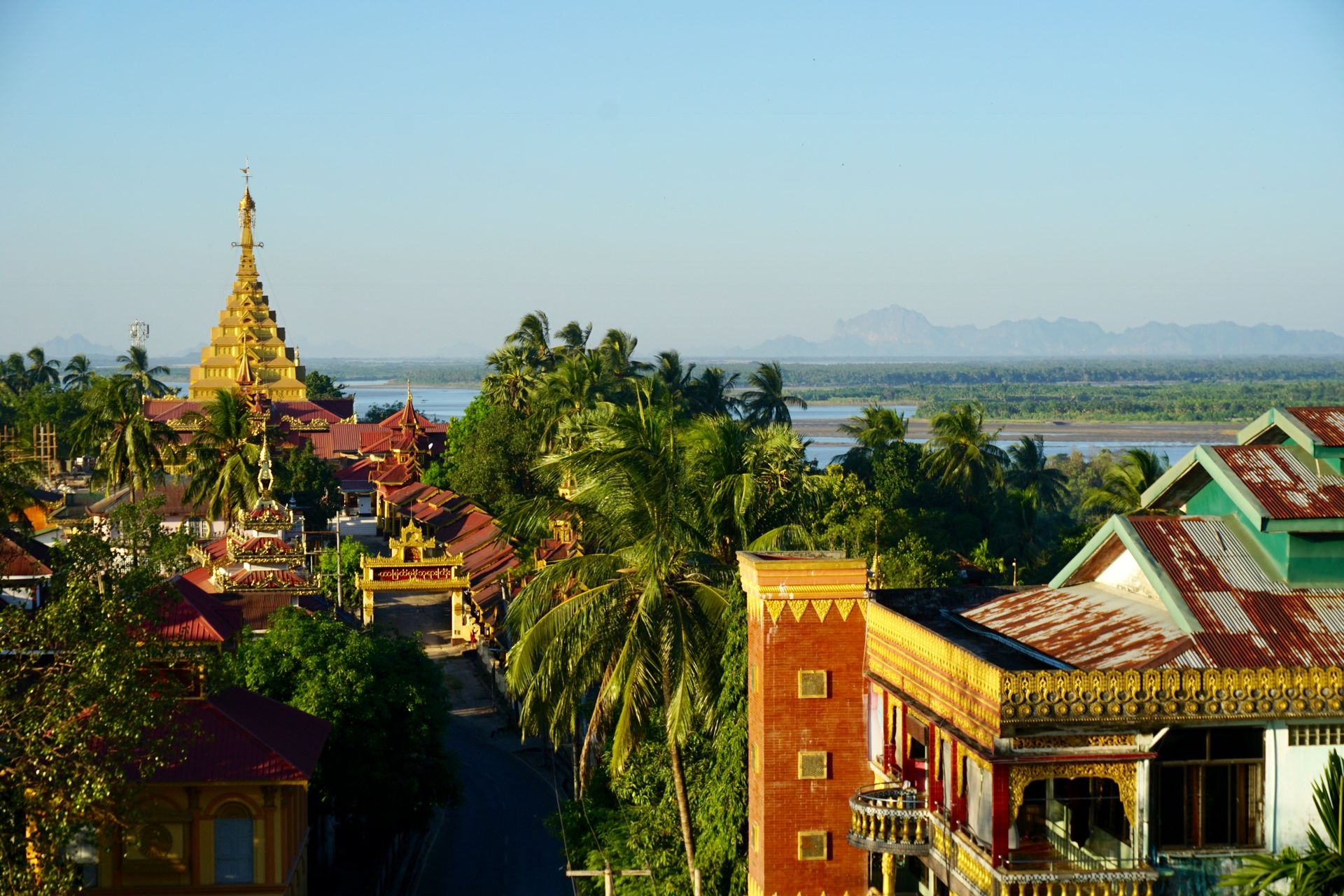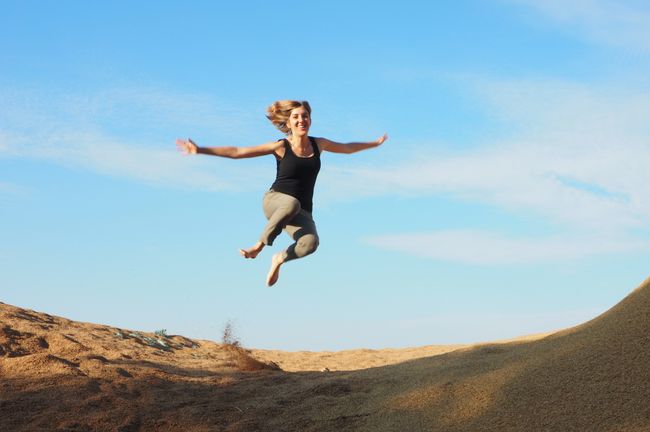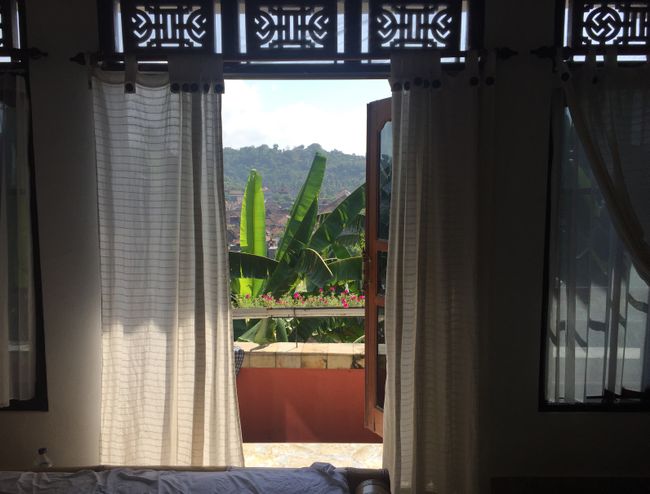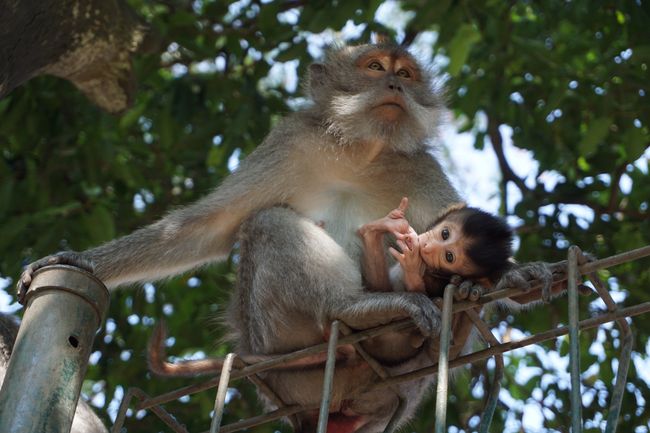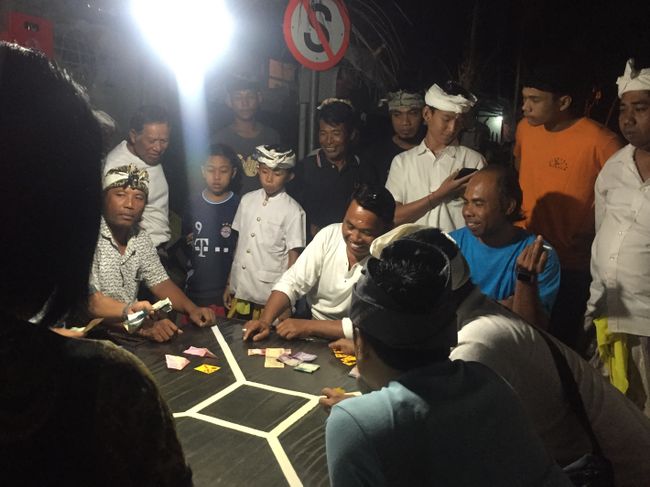Day 5: Curry, Beach, and Monkeys
প্ৰকাশিত: 07.10.2018
নিউজলেটাৰ চাবস্ক্ৰাইব কৰক
Five days have passed since we started our journey, but it feels like two weeks already, so many experiences in such a short time. Because we are experiencing so much, I hardly have time to write blog posts. But now it's time for a detailed report.
The last three days we spent in Padang Bai, a small village at the harbor, which is only a short stopover for most travelers before they continue to the Gili Islands by boat. But we found it so nice and calm there that we stayed for three days. There I realized that, unlike many other Asian countries, you can really find some delicious vegetarian dishes in the warungs (small, rather simple local restaurants). Sitting on red plastic chairs, I had a curry with lime leaves and lemongrass stems cooked in it, and Silke enjoyed a fish that the energetic restaurant owner recommended to her. Of course, we also secretly fed the cat and the limping dog, which I'm sure all the other guests did as well.
During the day, we went in search of the perfect beach and only found it the next day: the white sand beach. On the edge of the village, a small path led us past a cow and a sarong (Indonesian wrap skirt) seller into paradise. That was my first thought when we reached the beach after the dusty descent. The sand was as white as the name promised, and the water was bright turquoise. We were overjoyed with our discovery. There were a few warungs where we ate fried noodles with vegetables and curry with rice, drank fresh coconut and, of course, Bintang beer (Balinese beer). The waves got very high in the afternoon, but we still dared to go in. Many layers of sunscreen later, we made our way back to our accommodation, which was located on the hill above the village. At night, Hindu bell music wafted up to us, alternating with the call to prayer from the mosque.
One evening, our landlord told us that there would be a Hindu ceremony. In the midst of excited children, we watched it. The female dancers were dressed as men, had drawn on beards, and wore turbans on their heads. This group of dancers was then replaced by a single dancer dressed in glimmering colors. The idea of this Hindu dance was that she chose a man from the audience and invited him to dance. The men, half amused, half afraid of being chosen, ran away from her. Another group of men, all dressed in white and yellow robes and turbans, sat on the sidelines and played poker for money. Large sums of money were on the table, sometimes 400,000 rupiah, which is equivalent to about 20 euros and is the salary of two weeks in many professions. The men laughed, shouted, and had fun. A man standing nearby had his sleeping child in his arms. Otherwise, the distribution of roles among the Balinese seems to be very clear. No woman was playing poker.
There was so much to see and observe at this ceremony that I didn't know where to look first. Incense sticks, yellow flowers, garlands woven from baskets, and the same bell music we had heard from our accommodation the night before gave the place something magical.
After three days in Padang Bai and some nerve-wracking negotiations with taxi drivers, we continued to Ubud, a slightly larger city visited by many tourists. When we bought tickets to visit the Monkey Forest in Ubud, I wondered if we would see any monkeys. Shortly afterwards, we stumbled upon them. Monkeys everywhere: cheeky monkeys, old monkeys, monkeys who enjoyed doing a cannonball into their water basin, baby monkeys with wrinkled faces, monkeys stealing sunscreen, monkeys rightfully growling at tourists who stuck their GoPro cameras in their faces, and monkeys grooming each other. These encounters with the monkeys were a very impressive experience.
নিউজলেটাৰ চাবস্ক্ৰাইব কৰক
উত্তৰ
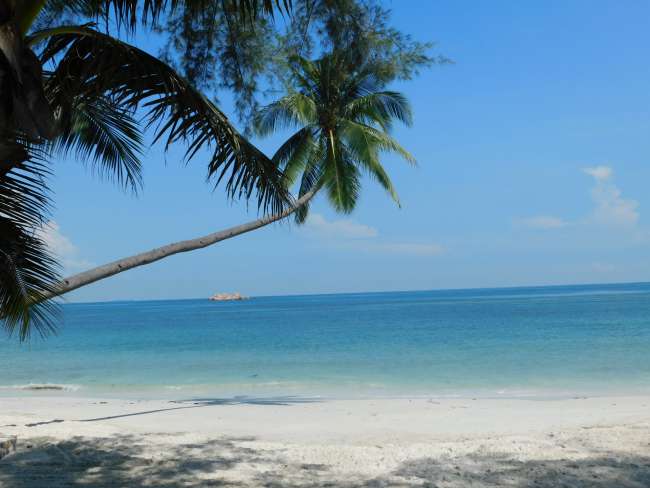
ভ্ৰমণৰ প্ৰতিবেদন ইণ্ডোনেছিয়া
